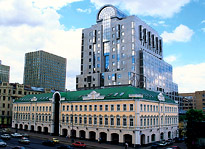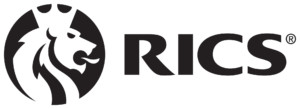
[Updated Oct 2020] A guide to serviced offices and office space to rent in Moscow as well as general information that may be useful if you are thinking of renting office space in the city.
For further offices information or to search office space for rent in Moscow just click. Or contact us for any other office space query.
History & Geography
Moscow is not only the capital of Russia but also the most populous city on the continent of Europe and a major political, economic and cultural hub. Located on the banks of the Moskva River in northwest Russia, Moscow is also near the headwaters of the Volga River, a strategic position which has contributed greatly to its importance throughout history. The first historical reference to Russia came in 1147 and in 1156 a wall was constructed around the emerging city by Prince Yuri Dolgorukiy of Rostov. Despite being sacked by the Mongols in the 13th century Moscow’s population continued to expand and the city became a prosperous entity in its own right. In 1480 under Ivan III the Russians finally defeated the Mongols and Moscow became the most important city in Russia. The 17th century saw Moscow occupied at one time or another by the Swedes, Poles and Lithuanians as well as experience a series of uprisings and riots. In 1812 Muscovites burned the city so it would not fall into the hands of the invading French forces under Napoleon. After the Russian Revolution of 1917, Moscow became the new capital of the USSR and later the Soviet Union. During WWII destruction once again loomed for Moscow as the invading German armies fought their way to the outskirts of the city. However, the Russians successfully defended the city and it survived the war intact despite damage from artillery and bombs. In 1980 the city hosted the Olympic Games which were boycotted by the USA and other nations due to Russia’s invasion of Afghanistan in 1979. When glasnost came to Russia Moscow was the scene of an attempted coup against Mikhail Gorbachev which ultimately failed. After the dissolution of the Soviet Union, Moscow remained the capital of Russia and profited from the emergence of a market economy. Today it is one of the wealthiest cities in Europe with a varied and dynamic economy.
Economy
Moscow comprises approximately 22 percent of the GDP of Russia and is one of the largest city economies of Europe. The city also has the lowest unemployment rate in Russia, standing at about one percent, in comparison to the national average of seven percent. Among the main industries in Moscow are financial services, retail, nanotechnology, chemical, metallurgy, textiles, food production and software development. The city is also home to automobile and helicopter design and manufacturing as well as distilleries and railway manufacturing. Moscow is home to more billionaires than any other city in the world and business sectors in the city are still experiencing exponential growth despite the financial crisis and the tenuous state of the Euro. Corruption and crime, however, continue to be large factors hindering the development of the city, though of late they have improved. Moscow is also home to the headquarters of many large Russian companies such as Gazprom. Moscow has been ranked as the most expensive city in the world for the last few years due to the cost of property and services. Currently, the cost of real estate in the city is continuing to rise.
Tourism
Moscow is not among the most widely visited cities in the world despite its historical and political importance. In the 1990s the city acquired a reputation for being dangerous and violent which it has not succeeded in completely shedding. Moreover, the fact that the city is more expensive than even London or Paris has also not helped sustain its tourism industry. However, despite these factors, the number of visitors to Moscow has grown each year and the city does have a lot to offer in the way of sites and activities. Red Square, Gorky Park and the Kremlin are taken in by most tourists, but Moscow also has a host of museums and galleries. The Tretyakov Gallery is only one of many cultural sites and houses the most important works of the Russian tradition. The Pushkin Museum of Fine Arts is another iconic gallery, featuring works by Monet, Picasso and Cezanne. Architecture fans will have to visit St Basil’s Cathedral with its distinctive onion domes, as well as the Shukhov Tower. However architectural wonders are fairly thin on the ground in the Russian capital. Moscow is a city of broad avenues and majestic roadways, designed under Stalin in an effort to modernize the city, and though the effect is startling and compelling, much of the city’s older architecture was destroyed to make room for the new construction and there are also many post-war housing blocks in various states of disrepair. In one area though Moscow can compete with any city in the world, and that is the nightlife. Moscow’s after-hours scent is mostly centred around Tverskaya Street and Manege Square, which is generally considered the playground of the Russian ‘nouveau riche’. Moscow also has a burgeoning restaurant industry and among the most popular Russian traditional dishes are pirozhki, blinis, and of course borsch soup.
Transportation
Moscow has a total of five airports, Sheremetyevo, Domodedovo, Bykovo, Ostafyevo, Vnukovo. Of these Sheremetyevo is the busiest, handling sixty percent of all international flights. Domodedovo is the primary airport for domestic travel. For travelling in the city itself, the Moscow Metro is the most common form of transport. It is famous for its murals, mosaics and chandeliers and has some of the longest escalators in the world. Each metro station also has a bus station nearby, part of a bus network which reaches every part of the city. The city also has a tram network, though it is not as frequently used by Muscovites due to many important connections having been withdrawn. Regular licenced taxis are available in Moscow however the city also has a tradition of private drivers stopping and giving people lifts for a fee. Moscow has nine main rail terminals, each serving a different part of the city and each handling different trains to Europe or Asia. Moscow is the most western terminus of the famous Trans-Siberian Railway which travels to Vladivostok on the Pacific coast.

Office space to rent in Moscow
Rents in Moscow are at an average of USD 1,100 per square metre per year for Grade A office space. There remains in the city a lack of supply that is unlikely to be solved in the near future. However continuing demand is likely to push rents up still further. In an attempt to alleviate congestion and overcrowding city authorities have recently announced a 20-year plan to move much of the city’s administration and large business to the south and southwest. The current vacancy level in the city is 15 percent.
Our office space search, advisory and acquisition services are FREE, always. Our Jacksonville office space brokers and agents are globally regulated by the Royal Institution of Chartered Surveyors (RICS) ensuring the highest standards of commercial property advice and service at all times.

The Office Providers is Regulated by the RICS